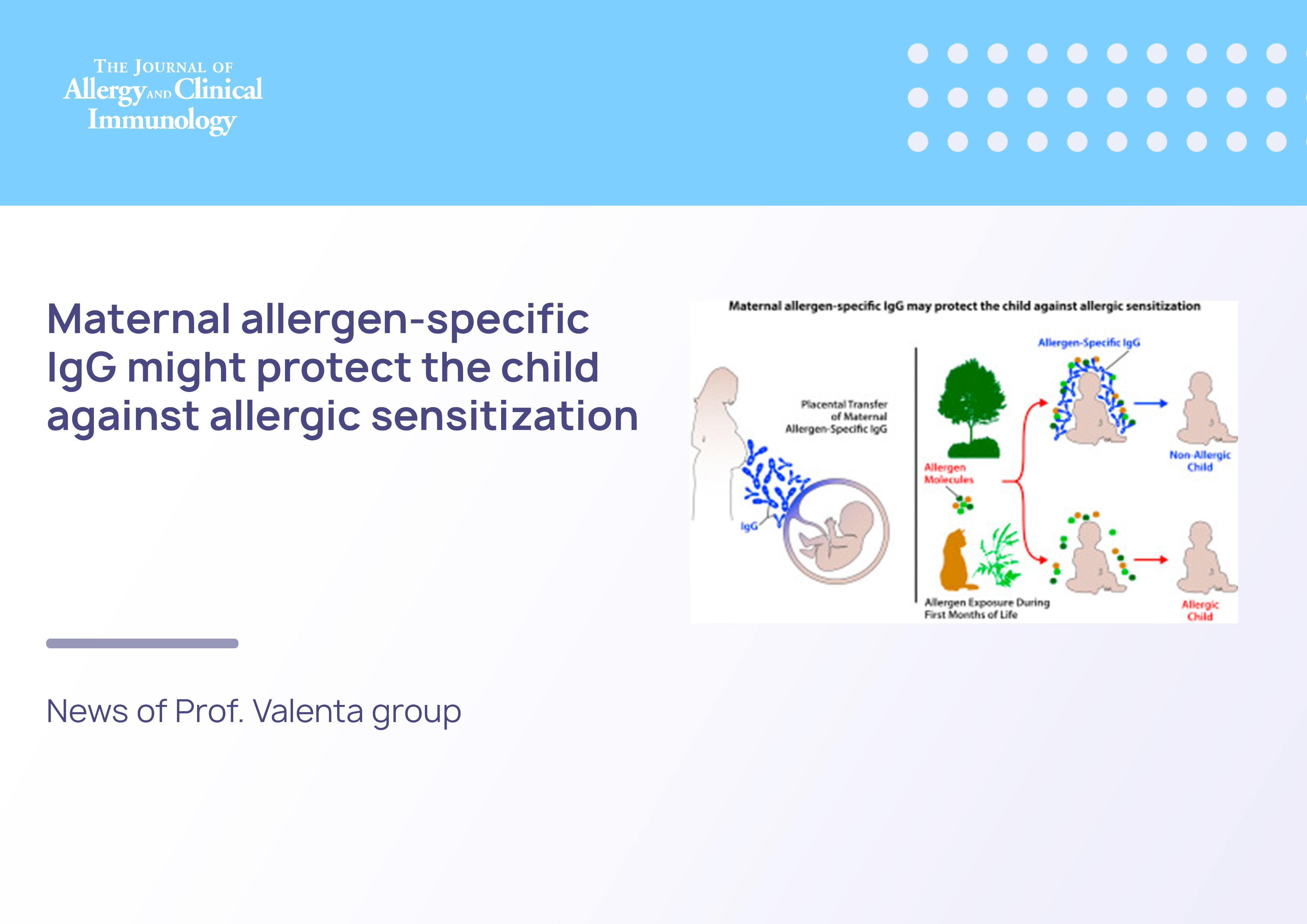Maternal allergen-specific IgG might protect the child against allergic sensitization
Lupinek C, Hochwallner H, Johansson C, Mie A, Rigler E, Scheynius A, Alm J, Valenta R. J Allergy Clin Immunol. 2019 Aug;144(2):536-548. doi: 10.1016/j.jaci.2018.11.051. Epub 2019 Jan 25. PMID: 30685457
Background
Analysis of allergen-specific IgE responses in birth cohorts with microarrayed allergens has provided detailed information regarding the evolution of specific IgE responses in children. High-resolution data regarding early development of allergen-specific IgG are needed.
Objective
We sought to analyze IgG reactivity to microarrayed allergens in mothers during pregnancy, in cord blood samples, in breast milk, and in infants in the first years of life with the aim to investigate whether maternal allergen-specific IgG can protect against IgE sensitization in the offspring.
Methods
Plasma samples from mothers during the third trimester, cord blood, breast milk collected 2 months after delivery, and plasma samples from children at 6, 12, and 60 months of age were analyzed for IgG reactivity to 164 microarrayed allergens (ImmunoCAP ISAC technology) in 99 families of the Swedish birth cohort Assessment of Lifestyle and Allergic Disease During Infancy (ALADDIN). IgE sensitizations to microarrayed allergens were determined at 5 years of age in the children.
Results
Allergen-specific IgG reactivity profiles in mothers, cord blood, and breast milk were highly correlated. Maternal allergen-specific IgG persisted in some children at 6 months. Children's allergen-specific IgG production occurred at 6 months and reflected allergen exposure. Children who were IgE sensitized against an allergen at 5 years of age had significantly higher allergen-specific IgG levels than nonsensitized children. For all 164 tested allergens, children from mothers with increased (>30 ISAC standardized units) specific plasma IgG levels against an allergen had no IgE sensitizations against that allergen at 5 years of age.
Conclusion
This is the first detailed analysis of the molecular IgG recognition profile in mothers and their children in early life. High allergen-specific IgG reactivity in the mother's plasma and breast milk and in cord blood seemed to protect against allergic sensitization at 5 years of age.




